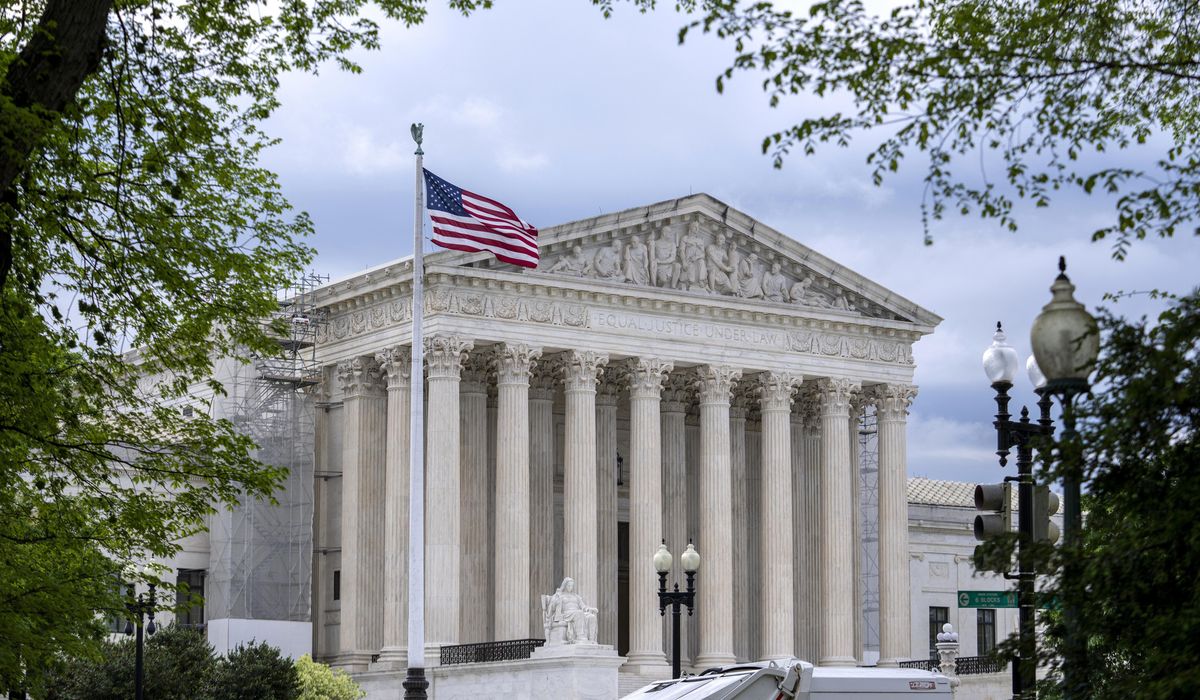


The Supreme Court is expected to resolve two major religious liberty disputes in favor of the plaintiffs — one involving the tax status of a Wisconsin charity, the other LGBTQ-themed books in public schools in Montgomery County, Maryland.
“I think the Wisconsin and Montgomery County cases are going to be wins for religious liberty,” said Josh Blackman, a professor at South Texas College of Law.
“I do think those other cases will end up with wins for religious liberty. … A majority of the court clearly doesn’t like arbitrary impositions on religion or treating religious organizations differently than secular ones,” said Ilya Shapiro, director of constitutional studies at the Manhattan Institute.
The justices during oral arguments appeared skeptical of Wisconsin’s decision not to extend tax-exempt status to a division of Catholic Charities, reasoning the group doesn’t serve only Catholics or evangelize.
The case came before the justices after the Wisconsin Supreme Court rejected the Catholic Charities of the Diocese of Superior’s position that it operates by its faith and should receive a religious exemption from the state’s unemployment insurance tax.
The Wisconsin Supreme Court said Catholic Charities serves and hires people of all faiths and thus cannot be exempt, prompting the organization’s appeal to the high court.
The case is Catholic Charities Bureau Inc., et al. v. Wisconsin Labor & Industry Review Commission, et al.
During oral arguments for the Montgomery County case, the justices signaled support for the parents of various faiths who challenged the Maryland school system’s requirement that pre-K through elementary students sit through LGBTQ-themed lessons on tolerance without the option of opting out.
The Montgomery County Board of Education rolled out its inclusivity reading program in 2022 for children from preschool through fifth grade. The program celebrates pronouns, Pride parades and gender transitioning.
One of the books used in the curriculum is “Pride Puppy,” which introduces 3- and 4-year-olds to Pride parades. Students can try to spot an “intersex flag,” “drag queen,” “underwear” and “leather.”
Another book, “Born Ready: The True Story of a Boy Named Penelope,” promotes letting children decide their gender and the idea that doctors only guess about gender at birth.
According to court documents, teachers are instructed to tell students that “not everyone is a boy or girl” and “some people identify with both, sometimes one more than the other and sometimes neither.” They are told to encourage the use of preferred pronouns.
The dispute centers on the county’s refusal to let parents with religious objections opt out of the instructions. However, the school system allows opt out options for other parts of the curriculum, such as for musicals or sex education.
The case is Mahmoud v. Taylor.
Opinions in both disputes are expected by the end of June before the justices head out on their summer recess. However, the court already has ruled on a major religious liberty case this term, in favor of the respondent.
In a rare 4-4 ruling, the justices let stand an Oklahoma Supreme Court decision that blocked what would have been the country’s first religious public charter school.
“This was as significant a case as any,” said Robert Tuttle, a religion and law professor at The George Washington University. “There are a lot of things that could have changed if the court had gone the other way.”
Charter schools are funded by taxpayers but run by private administrators.
Mr. Tuttle said the Oklahoma charter school case had the greatest potential of upending the Establishment Clause of the Constitution, which bars the government from sponsoring a religion. A ruling for the school — allowing it to open — could have led to overturning school prayer restrictions, he said.
The justices issued the ruling against St. Isidore of Seville Catholic Virtual School without a written opinion — suggesting the issue of a religious charter school may return to the court in a future term.
The legal battle began when Oklahoma Attorney General Gentner Drummond challenged the opening of the Catholic charter school, which had been approved by the state’s charter school board.
The school and the charter school board argued it was discriminatory to not allow a religious charter school since other types of charter schools are permitted in the state such as one that teaches American Indian history.
Oklahoma’s high court sided with the attorney general against the school opening. The school and the charter board appealed to the justices.
Only eight justices considered the dispute because Justice Amy Coney Barrett recused herself. She did not give a reason, and court watchers speculated she knew one of the advocates involved in the dispute.
Last week’s 4-4 decision let stand the lower court ruling, as a tie in the Supreme Court simply affirms a lower court’s decision.
The justices did not issue any writing on where they stood on the case, and court watchers say the high court could have to take up the issue again out of another state.
The two cases, which were consolidated, were Oklahoma Statewide Charter School Board v. Drummond and St. Isidore of Seville Catholic Virtual School v. Drummond.
• Alex Swoyer can be reached at aswoyer@washingtontimes.com.
